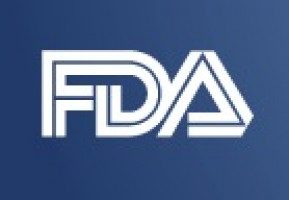
On August 9, 2023, the Food and Drug Administration granted regular approval to pralsetinib for adult patients with metastatic rearranged during transfection (RET) fusion-positive non-small cell lung cancer (NSCLC) as detected by an FDA-approved test.
Pralsetinib was previously granted accelerated approval for the NSCLC indication on Sept. 4, 2020, based on the initial overall response rate (ORR) and duration of response (DOR) in 114 patients enrolled in the ARROW trial (NCT03037385), a multicenter, open-label, multi-cohort trial. The conversion to regular approval was based on data from an additional 123 patients and 25 months of additional follow-up to assess the durability of response.
Efficacy was demonstrated in a total of 237 patients with locally advanced or metastatic RET fusion-positive NSCLC. Patients received pralsetinib until disease progression or unacceptable toxicity.
The primary efficacy measures were ORR and DOR as determined by a Blinded Independent Review Committee (BIRC). Among 107 treatment-naïve patients, ORR was 78% (95% CI: 68, 85) with a median DOR of 13.4 months (95% CI: 9.4, 23.1). Among 130 patients previously treated with platinum-based chemotherapy, ORR was 63% (95% CI: 54, 71) with a median DOR of 38.8 months (95% CI: 14.8, not estimable).
The most common adverse reactions (≥ 25%) were musculoskeletal pain, constipation, hypertension, diarrhoea, fatigue, oedema, pyrexia, and cough.
The recommended pralsetinib dose is 400 mg orally once daily. Pralsetinib is taken on an empty stomach (no food intake for at least 2 hours before and at least 1 hour after taking pralsetinib).
View full prescribing information for pralsetinib here.
Source: FDA
We are an independent charity and are not backed by a large company or society. We raise every penny ourselves to improve the standards of cancer care through education. You can help us continue our work to address inequalities in cancer care by making a donation.
Any donation, however small, contributes directly towards the costs of creating and sharing free oncology education.
Together we can get better outcomes for patients by tackling global inequalities in access to the results of cancer research.
Thank you for your support.